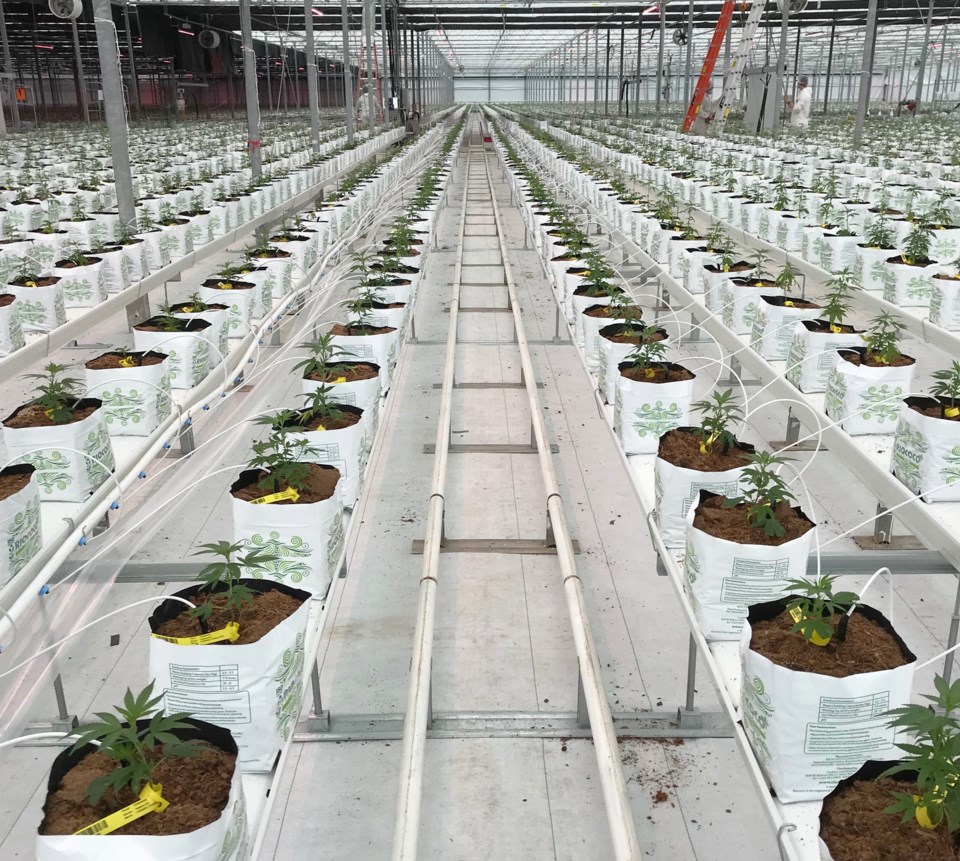Canada’s biggest cannabis company, which for a time operated a massive greenhouse in East Ladner, has secured a major loan as it positions itself for entry to the U.S. market
Ontario-based Canopy Growth Corp. last week announced it has secured a credit agreement with investment management firm King Street Capital Management, raising US$750 million (more than $930 million Canadian dollars) with the ability to obtain up to an additional US$500 million.
“We are delighted to welcome King Street as our anchor debt investor and look forward to building value for both our credit and equity investors over time,” said Mike Lee, EVP and CFO of Canopy Growth in a news release. “This transaction further strengthens Canopy's balance sheet, provides additional capital to invest in high-return growth opportunities, and marks a key milestone for us as we work towards achieving a more efficient capital structure.”
The company notes the term loan has no amortization payments and matures on March 18, 2026.
Last month in a company news release, CEO David Klein expressed optimism about entering the U.S. market, saying a lot of momentum is building for cannabis legislation to make its way through the process this year.
Last year as part of a series of cut-cutting moves, Canopy abruptly shut down its 1.7-million-square-foot facility on Hornby Drive in East Ladner, which was to be one of the world’s largest indoor cannabis grow operations.
A big fire heavily damaged the vacant facility last fall and the Delta fire department recently said the cause is still under investigation.
Canopy recently confirmed in a regulatory filing with the U.S. Securities and Exchange Commission that the company sold its vacant production facilities in Delta, as well as another in Aldergrove, for a combined CND$40.6 million, which was a major loss.
Canopy Growth had earlier spent millions to retrofit the greenhouses and later hundreds of millions to acquire the remaining interest that it didn’t own in a joint venture called BC Tweed.
Meanwhile, Canopy Growth is responding to a recent compliant filed by another large-scale Delta cannabis greenhouse operation called Pure Sunfarms about alleged product mislabeling.
In a complaint to Health Canada, Pure Sunfarms said Canopy has not properly labelled a number of cannabis products by indicating a flat historical tetrahydrocannabinol (THC) percentage, which may not accurately represent the quantity of each product batch.



